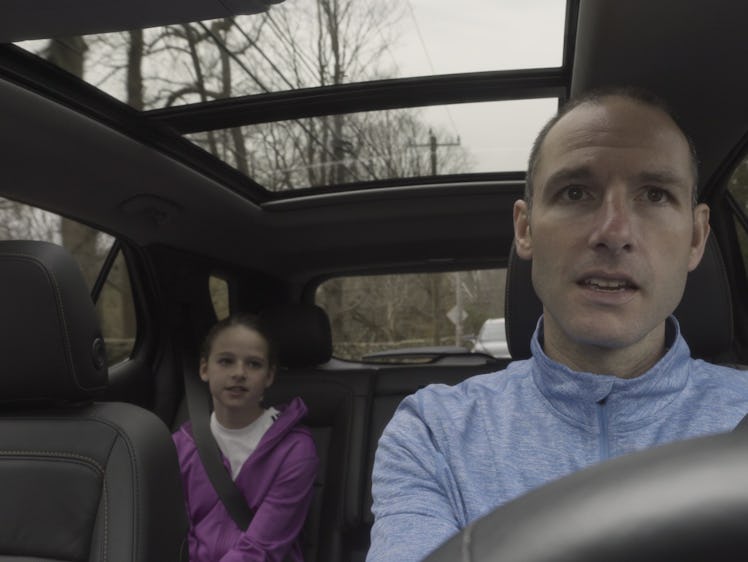The Car Conversation: What to Say to Your Daughter After a Big Loss
And what not to say.

The following was produced in partnership with Chevrolet’s GoalKeepers Project. The Chevrolet Goalkeepers Project demonstrates the possibilities that sports can provide for girls worldwide. Inspire girls to #BeAGoalKeeper with these tips from Fatherly.
We’ve all been there, on that awkward drive home following a big loss on the ball field. Maybe you remember it from childhood, when you were the sullen kid in the backseat, wishing for the sweet sound of silence while dad rambled on about that time he missed the game-winning shot in the eighth grade. Maybe you’re the dad, trying desperately to lighten the mood and draw your daughter out from beating herself up in her head.
The so-called Car Conversation is officially infamous. In 2014, John O’Sullivan, founder of the Changing the Game Project and author of the best-selling book Changing the Game: The Parents Guide to Raising Happy, High Performing Athletes, and Giving Youth Sports Back to our Kids, wrote that when he asked kids to name their least favorite moment in sports, he often got the answer: “The ride home after the game.”
Tina Syer, a former coach at the high school, collegiate, and Olympic Development levels, now the Chief Impact Officer at Positive Coaching Alliance, says she and her colleagues jokingly refer to it as “the dreaded post-game analysis,” and regardless of whether it occurs in the car, even the most well-meaning parents could use a few pointers. Here are some of her best practices for turning that conversation into the teaching moment you always knew it could be.
DON’T assume that your kid is down, or that you know how she feels
With younger children especially, parents will have connected something their kid did on the field with the loss, in a way that the child doesn’t. In other words, you think your kid is feeling a lot worse than she is, and leading with, Jeez Avery, you must be really bummed about that turnover is a complete misfire.
DO ask your kid if she wants to talk about the game
Just because you want to talk about the game, doesn’t mean your daughter does. Ask first. And if she doesn’t want to talk, let it go. Sometimes she needs time and space to digest the match. Other times, her focus could already be on something else, like the sleepover that night. Either way, the last thing she wants in that moment is for you to bring up her air ball and dissect it.
DON’T try and fix it
It’s okay for a kid to be disappointed, and while you can empathize, resist the urge to “fix it.” Instead, treat it as an opportunity for your daughter to flex her resilience muscle. Give her a nudge in the right direction with “you’re the kind of person who” statements. Charlotte, I know you’re upset right now, but you’re the kind of person who bounces back, and I know you’re going to use this experience to get even better.
DO be a quiet and reflective listener
If your daughter wants to talk, your first job is to listen. As Bruce Brown says in his book Teaching Character Through Sport: “athletes do not need adults to question their actions, the actions of other players, or the coach’s decisions concerning strategy or playing time.” Instead, ask open-ended questions that help a child reframe the game into a positive learning experience. So how do you think that’s going to change what happens at practice next week?
DON’T reminisce about your own sports failures
It’s an easy mistake to make — you want to show your daughter she’s not alone and that it happens to all of us, even you. But shifting the focus to your own sports mishaps can end up disconnecting her, There goes dad back to his glory days, with an eye roll and a tune-out.
DO reward her effort, regardless of outcome
Win or lose, you want to praise effort: I saw you run hard all the way through first base, I don’t even care that they threw you out, it was a heck of an effort, I’m proud of you. Truthful, specific praise goes a long way in replenishing a kid’s emotional tank. And praising effort, not outcome, sends the right message about what we value as parents, both on and off the field.